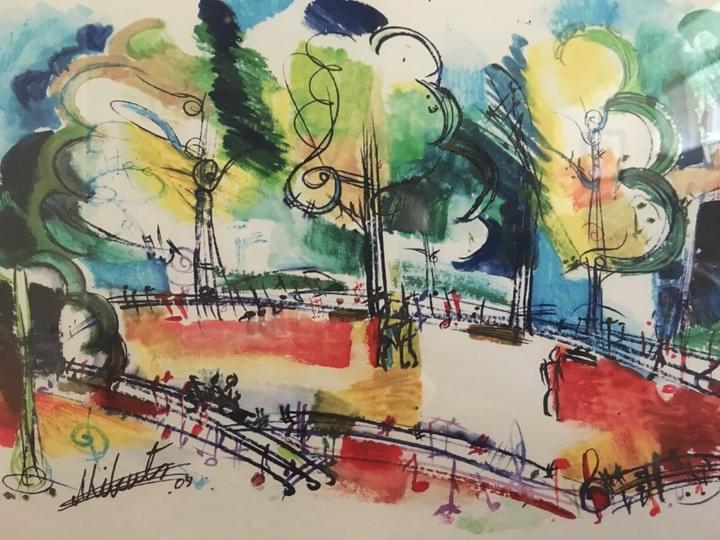

Jack M. Ringel
Seattle, WA
206-512-5861
- Home
- Welcome
- Prospective Patients
- Approach
- About Me
- Professional Services
- Fees/Insurance Info
- Military Veterans
- Professional Affiliations
- Location
- Contact Me
(206) 512-5861
jack@jackringel.com
Adult Psychotherapy &
Consultation
"From a small seed a mighty trunk may grow" -Aeschylus
Welcome:
Jack M. Ringel, MA, LICSW, BCD, PLLC
Psychotherapist | Consultant
Welcome to the website for my private psychotherapy practice, located in downtown Seattle. You will find here some basic information about the services I offer, as well as information about my background, credentials, and qualifications. If you are interested in beginning therapy or are a colleague wishing to refer or to consult, feel free to contact me. I normally respond within 1-2 business days.
Respectfully yours,
Jack M Ringel
(He/Him)
206-512-5861
For Prospective Patients:
In addition to in person sessions, I am sometimes able to offer phone and video sessions.
A brief reflection on getting started:
In a nutshell, I begin with this assumption about anyone seeking help: that they’ve tried the best they can with what they know; that, of course, there are things they don’t know (including about themselves); and that, if those areas can be brought to further awareness, and worked through in some meaningful way, new possibilities may emerge. My job is largely to help people know more about themself and about their ways of relating both to themself and to others (the two often being intimately related). There is much that we can never control as human beings, and that will never change. But one thing we can do is to tap into ever larger conceptions and awareness of our experience—which, wherever we go, and whatever we do, comes with us. Therapy can widen our conception of what is possible and empower us to achieve new things, while also allowing us to mourn what may not be able to change. Psychoanalytic therapeutic approaches are vehicles for that kind of psychological growth.
Although the specific reasons a person seeks therapy are as infinitely varied as individuals themselves, I do believe there are some common threads among people seeking this form of help. One such common thread is that a person has sought to grow psychologically in some way, and thus far has not been able to manage it alone, nor with their usual systems of support and guidance (including, perhaps, previous encounters with therapy). Many people make it to the office of a therapist or analyst knowing on some level that something is “off,” that there is pain and suffering that may feel unremitting or at least doesn’t seem to be transforming into something useful. They are a bit (or much more than a bit) at a loss of what to do next. In my view and that of contemporary psychoanalytic thought, what often blocks a person from healing and growing is, indeed, that which evades their usual consciousness; that which is on the fringes of, or sometimes completely outside of, standard and well-worn routes of thinking and feeling. In itself, it can feel disturbing to sense the unconscious basis of some suffering. But such painful places can also be liberated, or mourned, or made further sense of, when brought to light. This process is based in an ongoing, earnest commitment and partnership on behalf of patient and therapist. It is difficult and valuable work. The therapeutic relationship can be a catalyst for ongoing transformation.
Issues I help people with include:
- Grief and loss
- Anxiety
- Relationship issues
- Depression
- Trauma & PTSD
- Work/life balance
- Moral injury
- Adjustment issues
- Identity issues
- Obsessions and compulsions
- Meaning of life issues
- Damaging habits (including some addictive behaviors)
- Medically unexplained symptoms
- Narcissism
Therapeutic Approach:
“Every act of perception, is to some degree an act of creation, and every act of memory is to some degree an act of imagination.” - Oliver Sacks, MD
"Those who believe their suffering has been valuable love more readily than those who see no meaning in their pain. Suffering does not necessarily imply love, but love implies suffering"
― Andrew Solomon, Far from the Tree: Parents, Children, and the Search for Identity
“This must be the way most of us maneuver through the world, half knowing, half not, visited by memories that can’t possibly be true.”
― Elizabeth Strout, My Name Is Lucy Barton
While I’ve had training and experience in a variety of therapeutic modalities and techniques (including cognitive-behavioral, humanistic, and integrative approaches), I am most rooted in contemporary psychoanalysis.
Psychoanalysis has come a long way since Sigmund Freud, incorporating over the last 100+ years innovations in modern neuroscience, as well as innumerable advances in process, technique, and theory. It remains one of the most powerful ways to understand and work through some of life’s most challenging mental struggles, while doing justice to the individuality and the immensity of every mind. It is a profound honor and privilege to take part in this ever-evolving work.About Me:
I’m fully licensed in Washington State to conduct psychotherapy. Additionally, I have voluntarily achieved board certification (BCD) through the American Board of Clinical Social Work, which sets a higher standard than state licensure alone. I have over 10,000 hours of professional experience, which has been supported by regular consultation, supervision and training over the years with leaders in the field. I currently practice out of my private office in Seattle, Washington.
My graduate training was completed at the University of Chicago. My psychoanalytic training (ongoing) is at the Northwest Psychoanalytic Society and Institute (NPSI), which is accredited by the International Psychoanalytical Association (IPA). Prior to private practice, I worked in hospital, community clinic, and non-profit settings. I have provided trainings and given lectures to graduate students and fellow professionals in a variety of settings, including at the University Of Washington, Bastyr University, the Northerwest Psychoanalytic Society and Institute (Fundamentals program), social service organizations, and the Washington Department Of Veterans Affairs. I have also served on boards for multiple professional organizations.
Many of my current and past patients are/have been working professionals (including other therapists), parents, artists, and students. Among many differences, my patients vary with regard to race, ethnicity, sex, gender, religion, sexual orientation, occupation, educational background, and abilities.
Degrees, Training, and Other Credentials:
Master's of Arts, Social Work (AM/MSW), University Of Chicago
Senior Analytic Candidate, Northwest Psychoanalytic Society & Institute (NPSI)
Licensed Independent Clinical Social Worker (LICSW) , # LW60654067, State of Washington
Board Certified Diplomate (BCD) through the American Board of Clinical Social Work (ABCSW)
Fellowship, Centers For Excellence In Substance Abuse Treatment and Education, VA Puget Sound
Evidence Based Practice Program of Study, University of Chicago
Advanced Training for Addictions Counselors Program of Study, University Of Chicago
Credential of Readiness, HBX- Harvard Business School
Bachelors of Arts (BA), University Of Colorado
Professional Services:
Currently serving adults in the greater Seattle area

Individual Therapy:
Feel free to contact me if you're interested in starting individual psychotherapy, and I'll work to find you an initial appointment. The first few visits provide an opportunity for you to begin speaking about your life, to get an initial feel for the type of help that I offer, and for us to begin discussing a plan together to address your therapeutic needs and desires. At the end of that period I'll offer a recommendation either for ongoing appointments with me, or if needed, to a trusted referral source.

Consultation, Training, & Teaching:
I provide consultation and/or training to individual clients, providers, and organizations regarding a variety of issues, including on topics such as trauma, group dynamics/functioning, stigma, diversity, self-care, veteran-specific issues, and cultivating healthy work cultures in both for-profit and not-for-profit settings. A consultation may be one time or via periodic or ongoing visits. I am also sometimes available for teaching engagements. I'd be glad to tell you more about these services.
Fees and Insurance Information:
Fees:
My standard fee for individual therapy is $175 per 50 minute session. I offer a limited number of sliding scale slots for those who cannot afford my full fee. Group and organization level consultation fees are determined based on the scope of the work involved. If you have questions about this, we can of course discuss my fees and billing practices further.
Payment is by cash or check, and detailed receipts can be provided upon request. I normally bill monthly.
Insurance:
To protect patient privacy and to solidify the partnership as being one solely between my patient and me, I have chosen to not contract directly with insurance. This means that patients pay me directly each month. Depending on one's insurance, their plan may allow for submitting receipts for out-of-network coverage, in which case insurance may reimburse a patient directly for some of the costs. These details are further laid out in my consent form. This of course can also be discussed further.
Good Faith Estimate of Charges:
Under the No Surprises Act, you have the right to a good faith estimate of charges.
Active Duty & Military Veterans:
"When you get into a tight place and everything goes against you, till it seems as though you could not hang on a minute longer, never give up then, for that is just the place and time that the tide will turn." - Harriet Beecher Stowe
"Once we recognize our shadow's existence we must resist the enticing step of going with its flow.”
― Karl Marlantes, What It is Like to Go to War
I have special interest and experience in working with military veterans and their families. If you are a veteran or active duty military service member I gladly welcome you to contact me. I have multiple years’ experience specifically serving vets, including those who served in combat operations overseas and from multiple eras.
I’ll start from a position of respect for you. We can always find personal strengths to work from, proceeding at a pace that fits you, with an eye toward long-term growth and healing, not just short-term symptom relief.Professional Affiliations:
Below are some professional organizations I am an active member of:
Northwest Psychoanalytic Society and Institute (NPSI)
Seattle Psychoanalytic Society & Institute (SPSI)
International Psychoanalytical Association (IPA)
Confederation of Independent Psychoanalytic Societies (CIPS)
National Association of Social Workers (NASW)
Washington State Society For Clinical Social Work (WSSCSW
Clinical Social Work Association (CSWA)
Northwest Alliance for Psychoanalytic Study (NWAPS)
Location/DBA:
1904 3rd Ave, Suite 919, Seattle, WA 98101 (by appointment only)

My office is located in downtown Seattle, on the ninth floor of the historic Securities Building. It is quiet and wheelchair accessible. There is an attached parking garage, and sometimes street parking available as well. It is accessible via many bus-lines, and has bike parking available as well.
In addition to in person work, I currently offer phone and video sessions when appropriate. In consideration of the recent pandemic, for in-person sessions I have safety protocols in place. We can discuss those further if needed.
DBA: I do business under my name and as Bristlecone Psychotherapy & Wellness, PLLC
Contact Me
If you are interested in speaking with me more, please contact me using the information below. I can also sometimes provide referrals to other local providers.
Copyright 2015-2026, All Rights Reserved; See Terms and Conditions below for important information about this site



